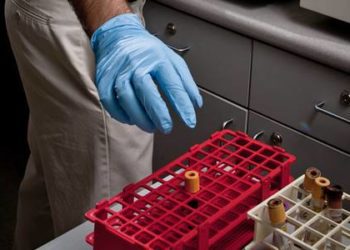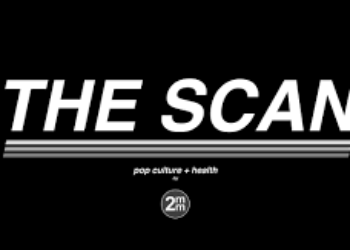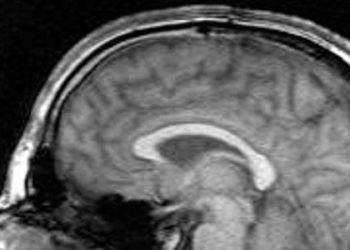The Scan by 2 Minute Medicine®: Millions off Medicaid, Hugh Jackman’s Skin Cancer Scare, Artemis II Crew, Earth Day
4-17-2023
The Scan by 2 Minute Medicine® is a pop-culture medical newsletter and exclusive benefit for 2 Minute Medicine Plus subscribers.
Millions off Medicaid
The Story: As we draw further and further away from the beginning of the COVID-19 pandemic, life grows closer to normal. However, for many, the perceived conclusion of the pandemic signals the end of health security, as restrictions that prevented states from removing people from Medicaid coverage are now coming to an end. Around 15 million Americansare expected to lose Medicaid coverage as a result of these changes.
Medicaid Coverage
Medicaid is state-administered health insurance provided to over 70 million Americans. Medicaid eligibility is determined by individual states. However, coverage is federally mandated for specific high-risk groups, including individuals with low income, pregnant women, seniors, and individuals with disabilities. Due to the pandemic protections, the uninsured levels in the United States reached an all-time low in 2022. However, this is likely to change with the changes to Medicaid coverage. Medicaid eligibility is largely dependent on income, and those who don’t meet pre-pandemic income eligibility requirements will no longer be insured under the program. In states that have adopted the Affordable Care Act’s (ACA) Medicaid expansion, coverage will be provided for adults with a household income below 138% of the federal poverty level. Others who are no longer eligible for Medicaid may be able to receive subsidized health insurance under the Affordable Care Act. Whereas, in the ten states where Medicaid expansion has not been adopted, individuals who have incomes that are below the federal poverty line but above Medicaid cut-offs are not eligible for either insurance coverage and are considered part of the coverage gap.
The Problem
It is estimated that over 2 million Americans exist within the coverage gap and don’t have access to health insurance. The coverage gap also has the ability to perpetuate long-standing inequalities, as it is known that over half of those in the coverage gap are racial and ethnic minorities. Access to health insurance is also an important predictor of health outcomes. In young adults, discontinuous healthcare coverage is associated with poorer health outcomes and reduced healthcare utilization. Meanwhile, Medicaid access is associated with a number of positive outcomes, including improvements in relative racial disparities in birth outcomes, increased access to preventative care, and improved self-reported health. Making sure health insurance is accessible to all will be a vital in improving nationwide health outcomes.
Hugh Jackman’s Skin Cancer Scare
With a bandage on his nose, Hugh Jackman took to social media recently to remind his followers of an important message: no tan is worth skin cancer. The Australian actor underwent tests for a suspected basal cell carcinoma (BCC). which he was first diagnosed with in 2013. Although the test results came back negative for cancer, Jackman is taking the opportunity to spread awareness about sun safety.
Skin cancers are the most common cancers in the USA, and BCC is the most frequently diagnosed among these. BCC often results from damage following ultraviolet (UV) radiation exposure, so the cancer typically occurs in areas that are frequently exposed to the sun. Surgeries and radiation that remove and destroy the cancerous tissue are often very effective in treating the disease. However, early detection is still very important, so noticing warning signs such as new growths on the skin and changes in previous skin lesions can aid in prompt treatment. Other skin cancers, such as melanoma, do not have as promising prognostics, where the risk of metastasis to other organs is much higher than that of other skin cancers, and has a significant impact on survival.
Over the years, the incidence of skin cancers has been on the rise. Many hypothesize that the effects of global warming, including rising temperatures, ozone depletion, and increases in UV radiation exposure are playing a role in the trend in skin cancer diagnoses. Being sun safe is one of the main ways to prevent your risk of developing skin cancer, including preventing sun exposure and wearing sunscreen. As we enter warmer months, it is important to remember Hugh Jackman’s message: sun protection is more important than summer tans.
Artemis II Crew
NASA recently announced the four-person crew for the 10-day Artemis II mission that will orbit around the moon in November 2024. Although the flight crew is making headlines as the first to head to the moon in 50 years, there are lots of people behind the scenes who will make this spaceflight possible, including physicians. Once a crew is named, a flight surgeon is assigned to keep the team in good health before space flight. The flight surgeon is like a team doctor, addressing any health issues that go on prior to, during, or following the space expedition. In addition to typical medical training and residency, the physicians tasked as a crew’s flight surgeon undergo additional certification in Aerospace Medicine. Although most physicians provide on-earth support, some physicians have even doubled as astronauts in space.
One of the key components of delivering healthcare to space crews is through the use of telemedicine. Before the telemedicine boom that accompanied the most recent pandemic, NASA was using these technologies to provide in-flight care to astronauts via communication with the on-earth flight surgeon. But the physicians don’t do it all: before the flight is in session, crew members receive training on how to use the medical equipment that is available on the flight. One crew member typically undergoes additional training as the designated crew medical officer for the trip. Although the medical issues that arise in spaceflight are usually minimal, occasionally a medical emergency may be detected. Two months into a six-month space mission a previous crew member was found to have a deep vein thrombosis. The astronaut underwent consultation with a thrombosis specialist, who advised a treatment plan with the resources available on-board. Flight surgeons and physicians are just some of the many people who will be working on the ground to help the Artemis II crew take flight next year.
Earth Day
On April 22nd, the world will celebrate Earth Day—a day to raise awareness about protecting the environment. While many have pointed out the impact of global warming on health, it’s also important to recognize the role of healthcare in contributing to the climate crisis. In fact, the environmental impact of the healthcare system is quite significant, with some estimates suggesting that the healthcare system contributes over 4% of global greenhouse gas emissions. In the United States this number is even larger, with the healthcare system contributing around 10% of the country’s overall annual emissions. Although emissions from medical facilities play a role, the vast majority of the healthcare system’s environmental impact comes from the production, transport, and use of products such as pharmaceuticals, electronic equipment, plastic products, and more.
Not only does the delivery of healthcare services contribute to climate change, but so too does medical research. Single-use plastics are highly prevalent in research laboratories, while clinical trials have been estimated to contribute over 27 million tons of greenhouse gas emissions. It’s clear that healthcare’s impact on the environment stretches all the way from the laboratory bench to the patient’s bedside. This Earth Day let’s not just consider what climate change will do to the healthcare system, but how the healthcare system is contributing to climate change.
©2023 2 Minute Medicine, Inc. All rights reserved. No works may be reproduced without expressed written consent from 2 Minute Medicine, Inc. Inquire about licensing here. No article should be construed as medical advice and is not intended as such by the authors or by 2 Minute Medicine, Inc







